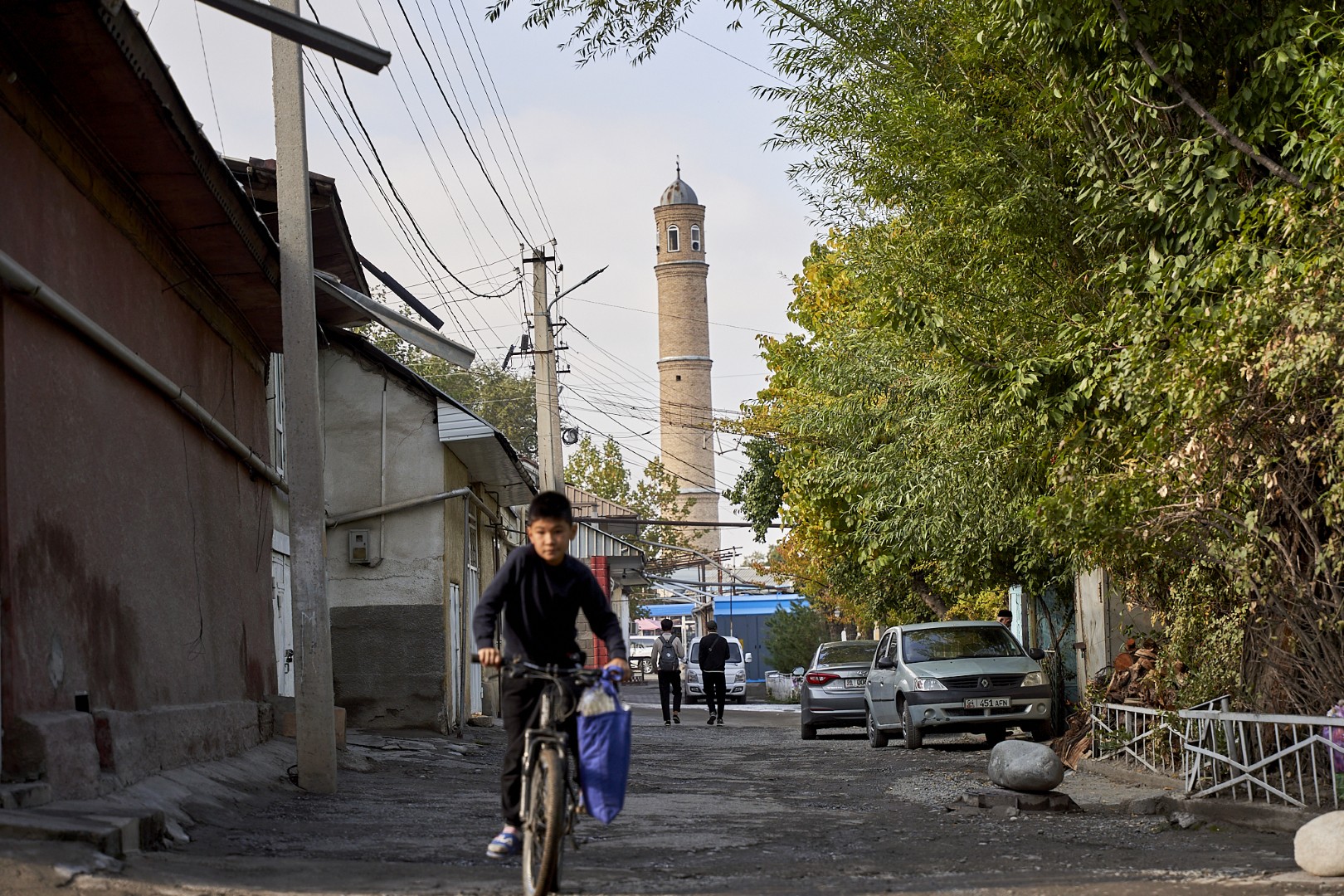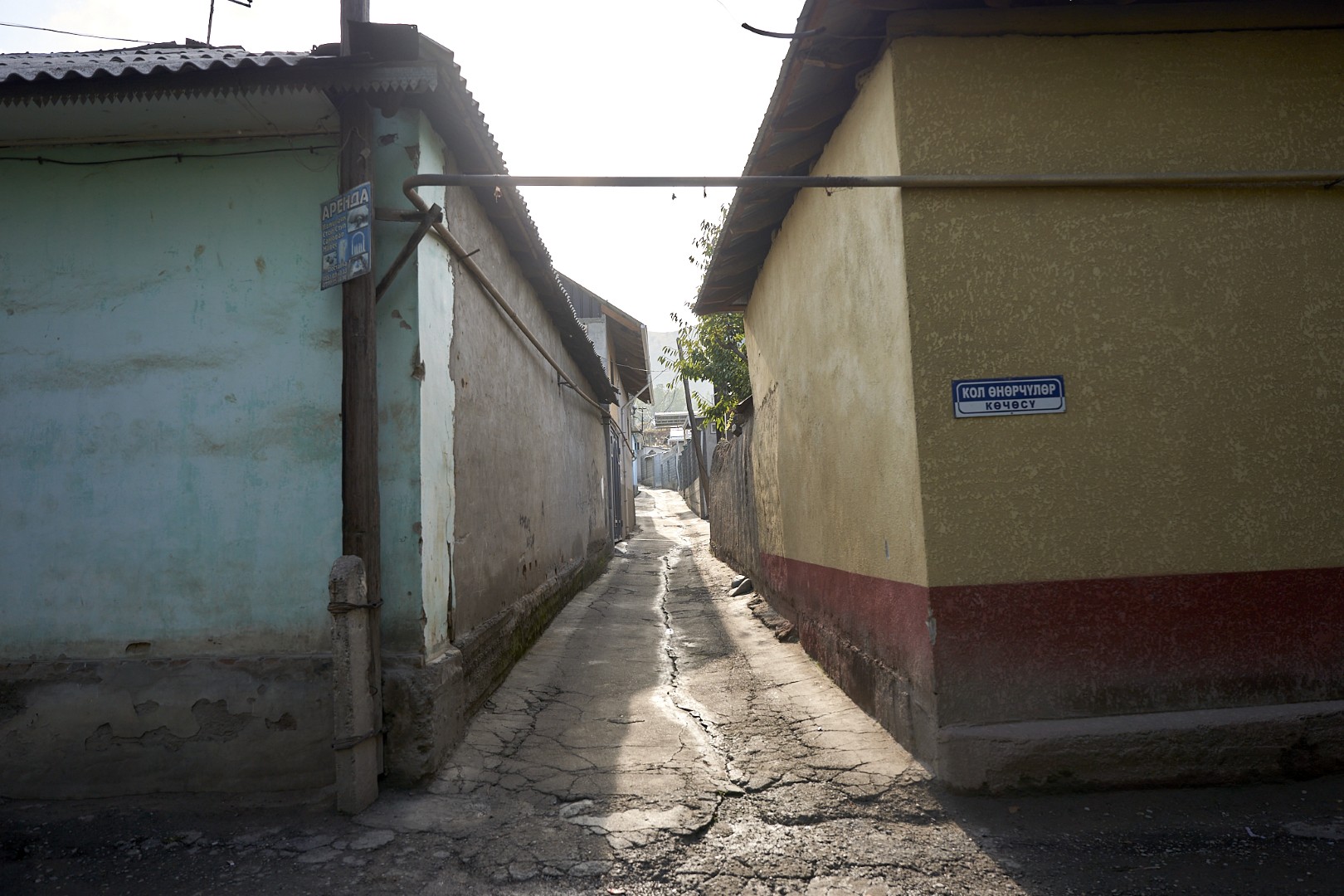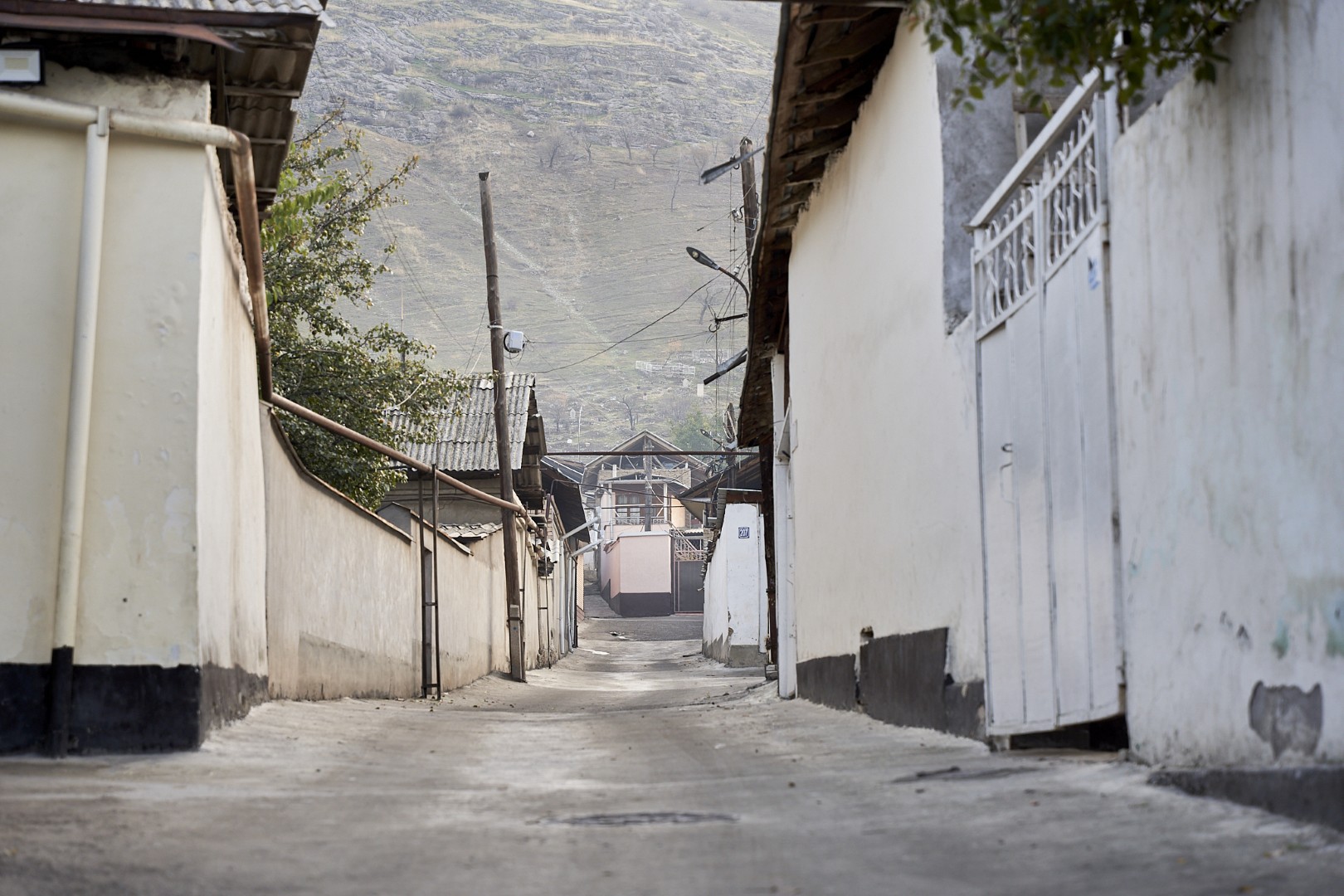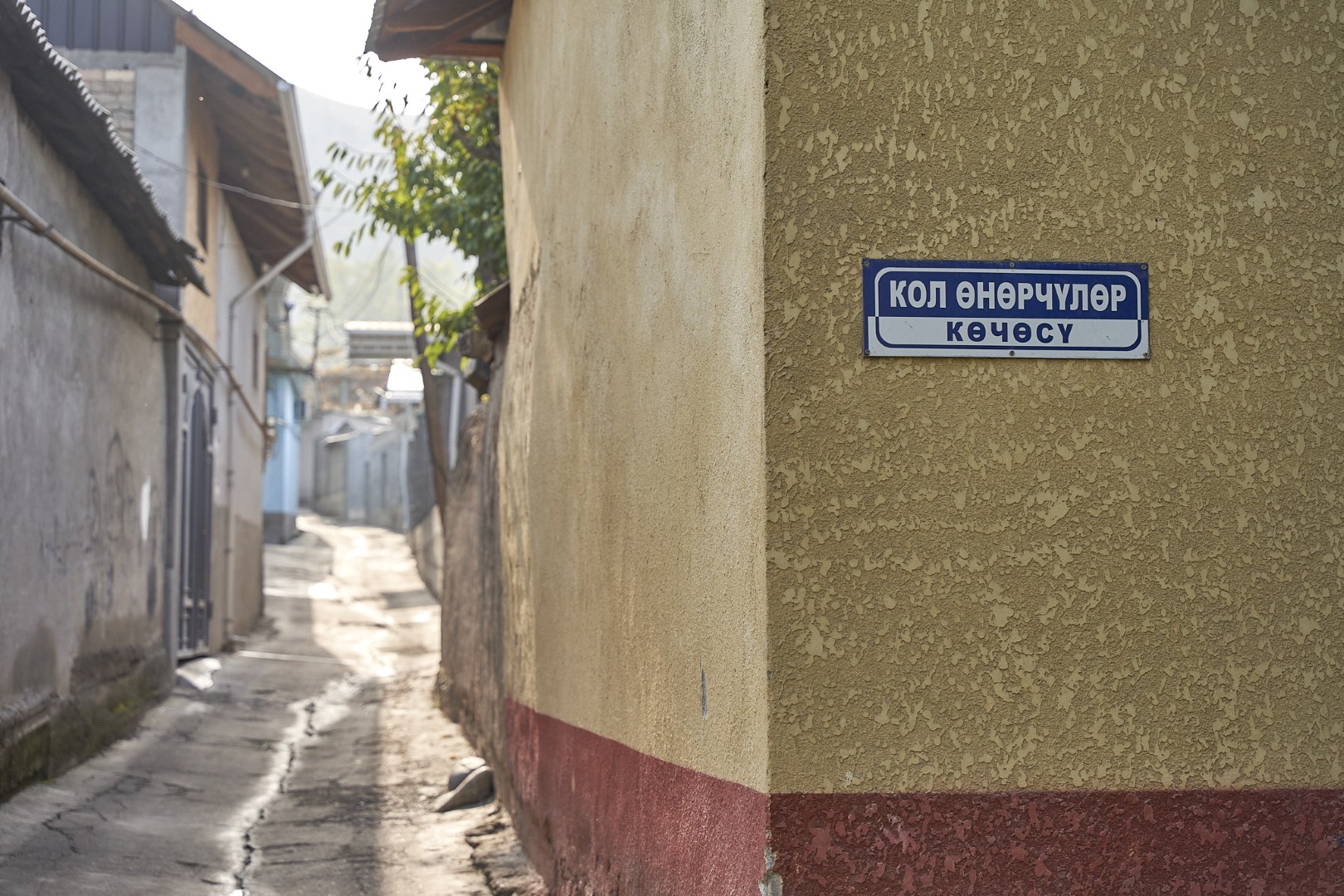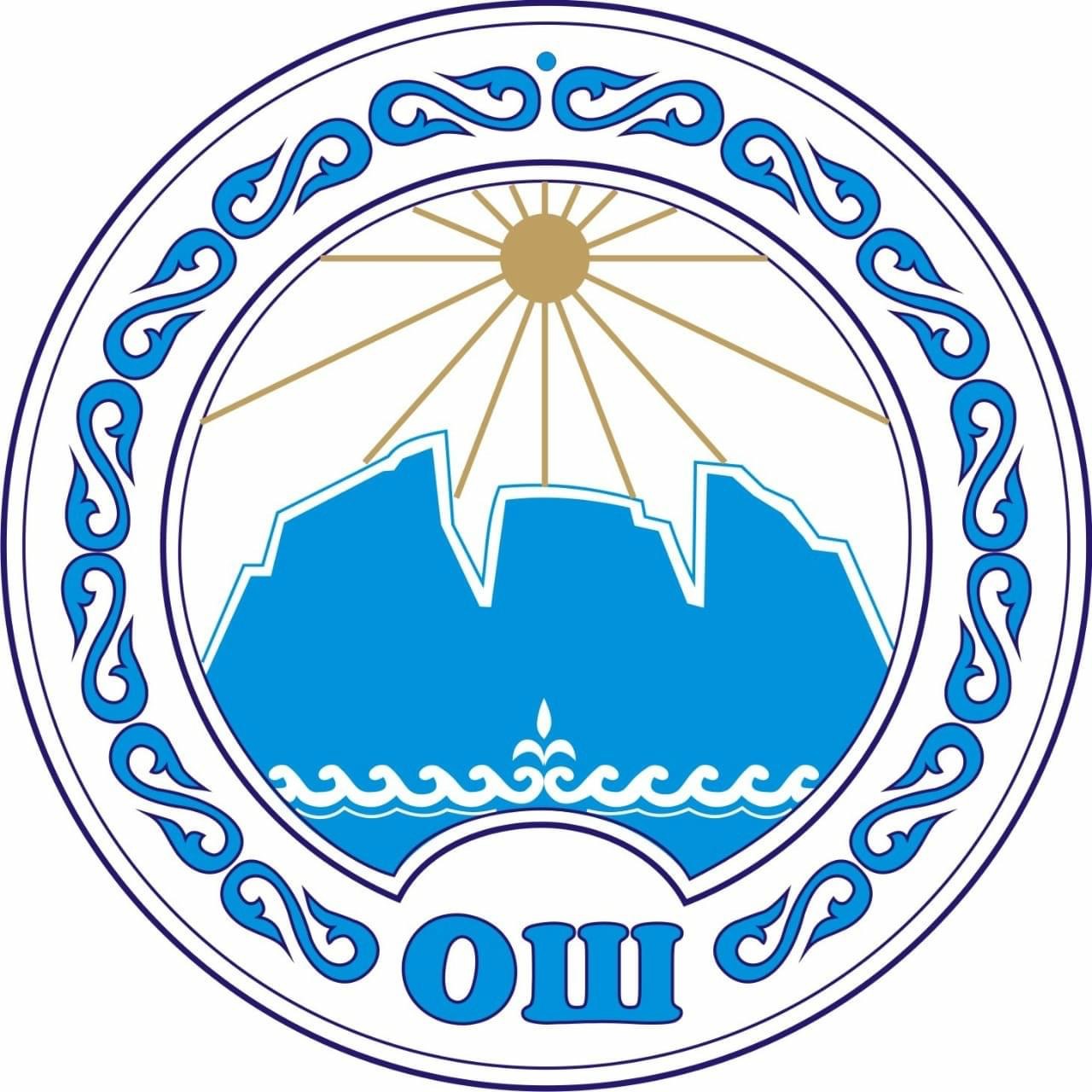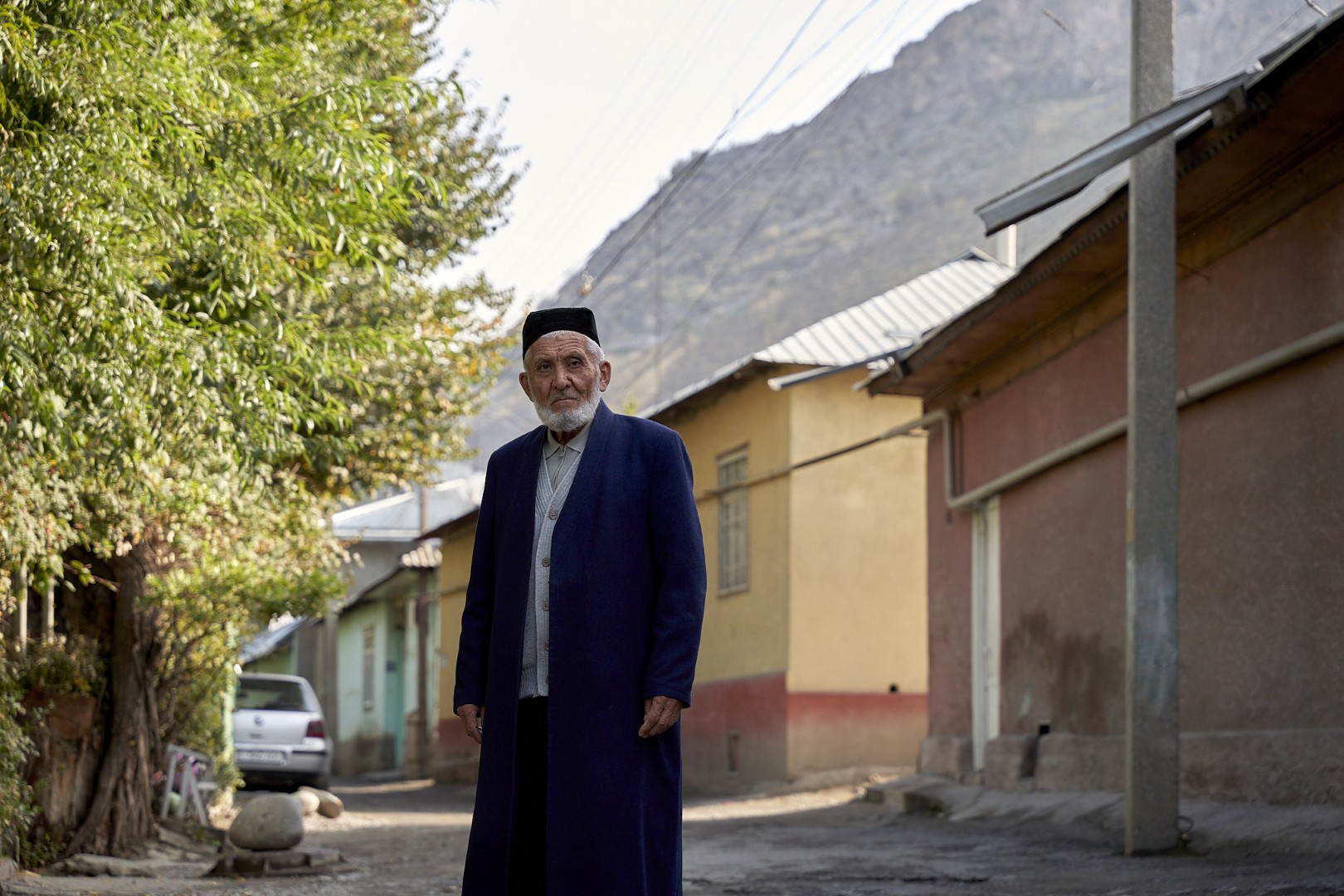

Kol Onorchulor str.
Add to My Tour
Artisans Quarter
Artisans Quarter is one of the favorite urban subjects of Osh painters. After Suleiman Mountain, it is the most recognizable location portrayed by local landscape artists. In ancient times, because of the abundance of mosques and madrasahs, this part of Osh was sometimes called the “quarter of sheikhs.”
Once called Alabaster Street because of the limestone and alabaster that were mined nearby, this historical thoroughfare was renamed in 2009 in honour of Osh artisans. In 2011, the Osh City Hall received an official confirmation of the inclusion of the area around Suleiman Mountain as a UNESCO World Heritage site. As part of future regeneration initiatives, workshops will open in each of the houses along the street, and will begin to revive the lost crafts for which Osh was once renowned.
Along the street, the Zhupas-Aryk canal flows out of the Ak-Buura River, as it has for hundreds of years. During the construction of the central square in the 1960s and 1970s, Zhupas-Aryk was cemented and hidden underground. These days, it quietly appears aboveground in different places throughout the city. On it, as in the old days, water-lifting wheels called “chigiri” are installed to water household plots inside residential courtyards. Along the canal you can see fortified banks, constructed in the Middle Ages.
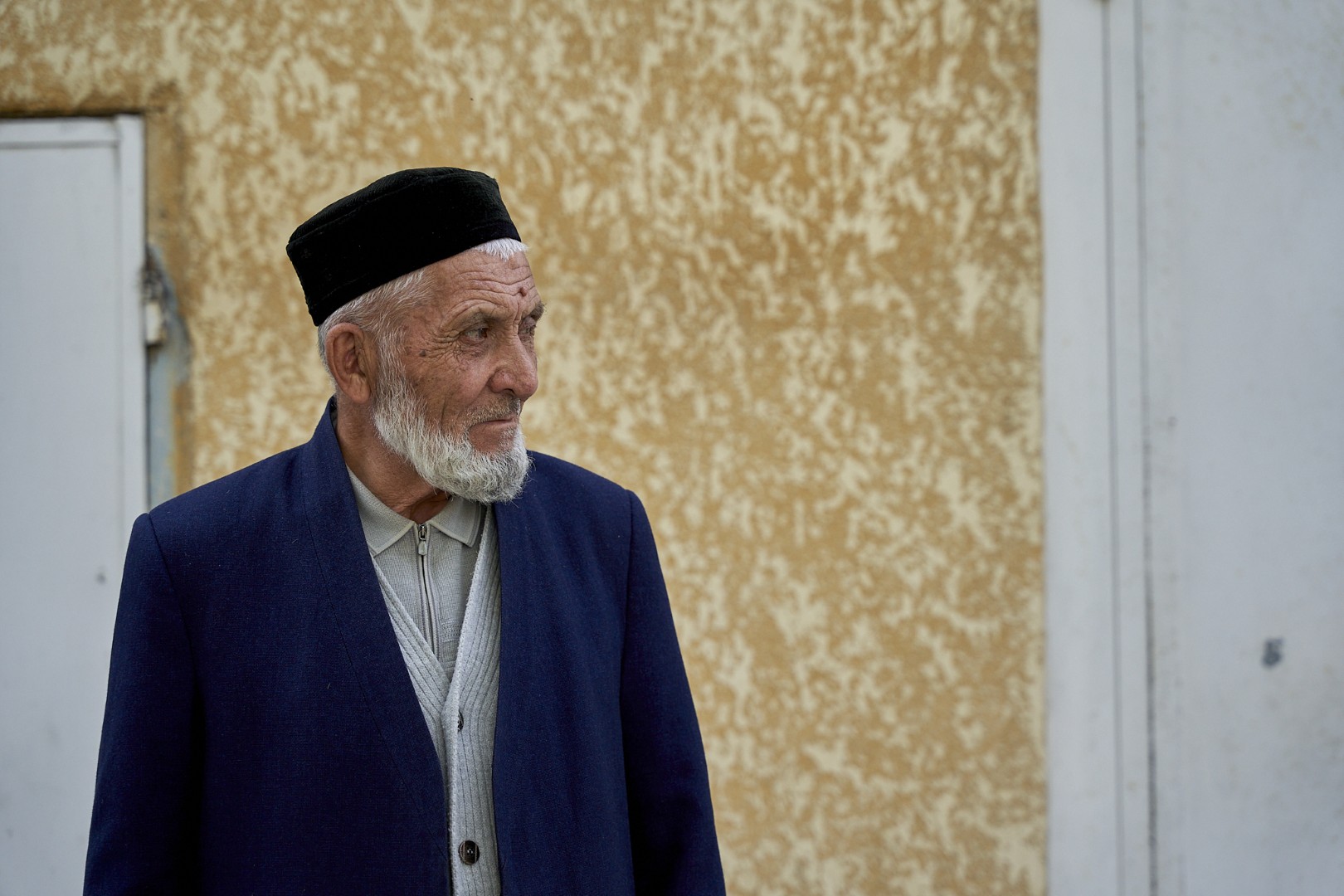
Here, houses constructed in the style typical of the Fergana Valley in the early 20th century, have been preserved to this day. Narrow streets with hidden passageways and dead ends create the feeling of a mysterious and ancient city, frozen in time.
In the courtyards of this quarter, grapes always grow in thick canopies, creating curtains of shade on hot summer days. Household gardens invariably include groves of figs and persimmons, whose bright fruits are not harvested until the first snows. Huge, fragrant dark purple raykhon (basil) bushes sprawl all over the courtyards. Knock on the gate, exchange a traditional greeting, and immerse yourself in the unique comfort of the old quarters of Osh.

Locations Nearby
-
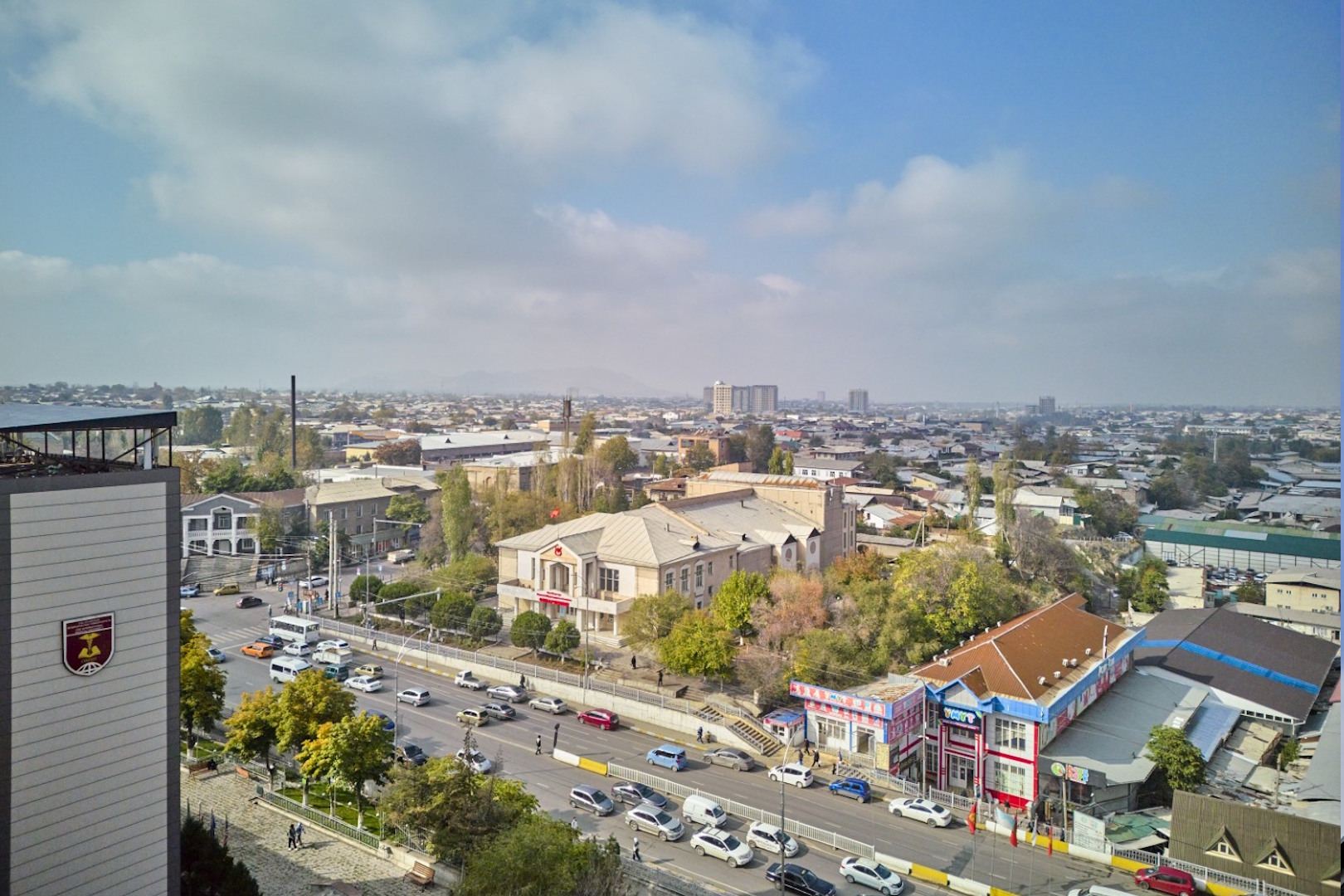
Madrasah of Khalmurzay and Mukhammedbay Turk
Today, in the square between Navoi, Kurmanjan Datka and Lenin Streets, it is difficult to find the outlines of the old quarter of Osh. It…
-

Artisans Quarter
Artisans Quarter is one of the favorite urban subjects of Osh painters. After Suleiman Mountain, it is the most recognizable location portrayed by local landscape…
-
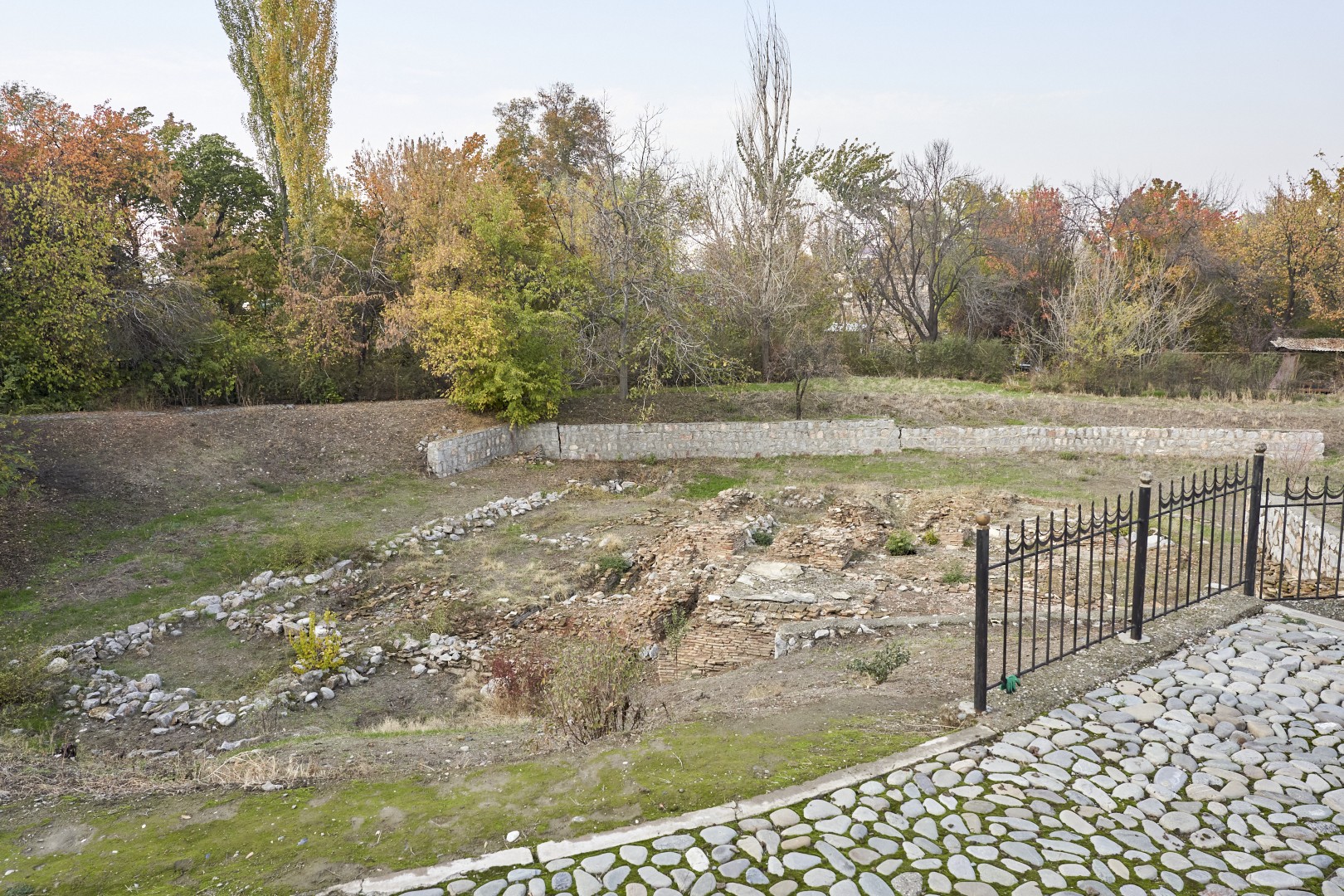
Medieval Bath
The remnants of a medieval bathhouse at the northern foot of Suleiman Mountain were discovered quite unexpectedly in 1984 during construction work for a new…
-
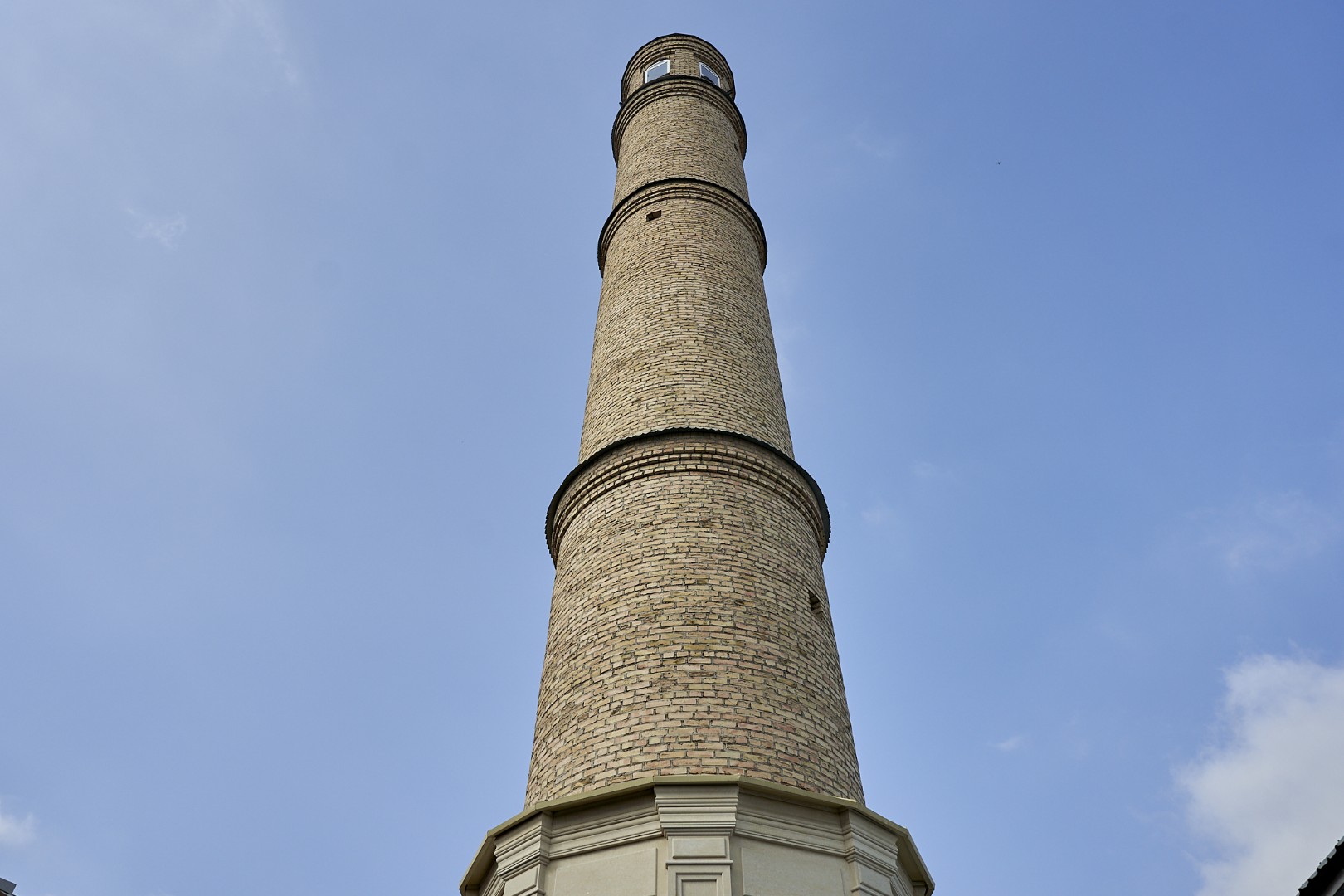
Mosque of Mohammed Yusuf Bai Haji Ogli
Mohammed Yusuf Bai Haji Ogli Mosque, an architectural monument of the 20th century, located on Navoi Street, is an example of a “guzar” (quarterly) religious…
Other Locations
-
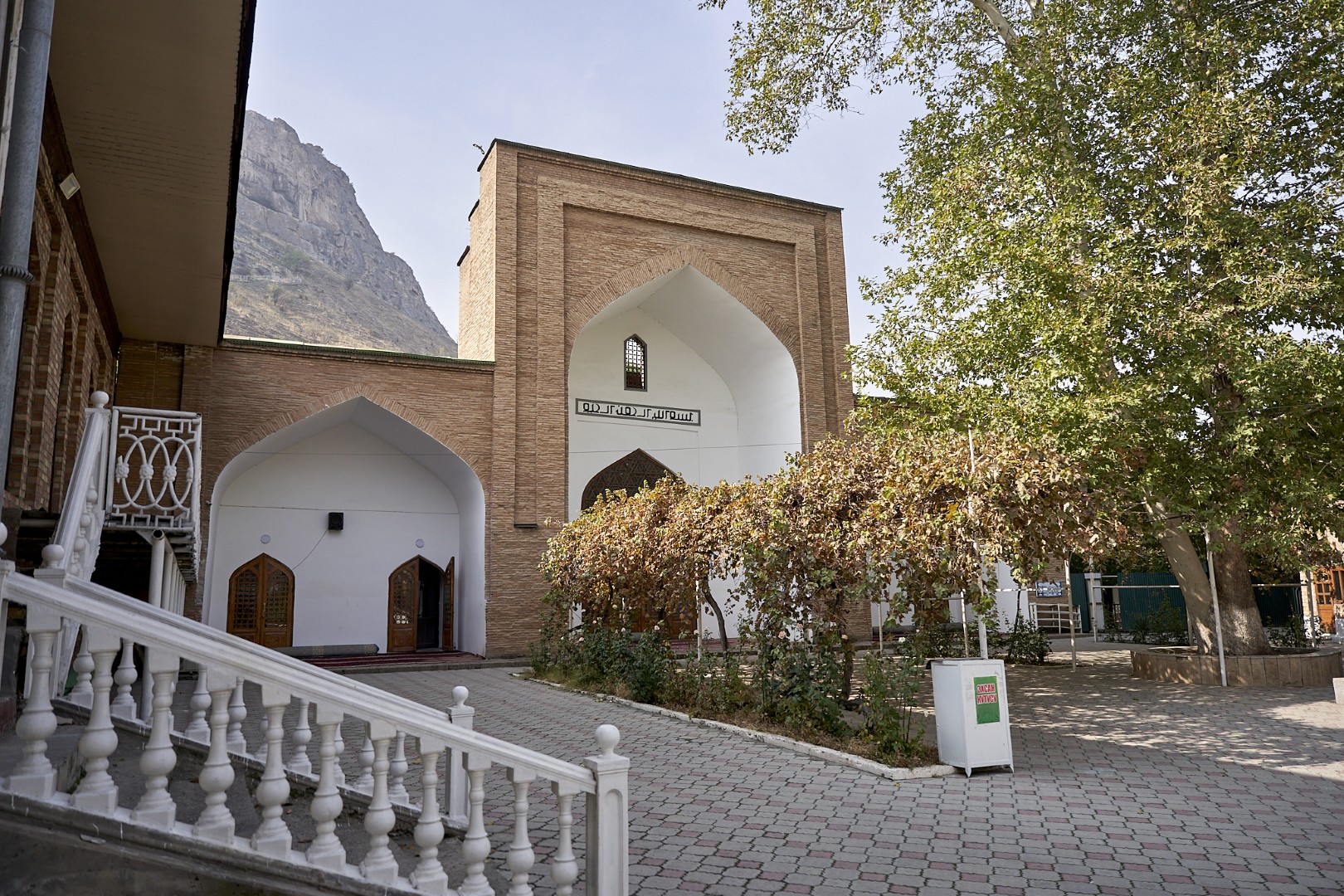
Rabat Abdullah Khan Mosque
Rabat Abdullah Khan Mosque, a historical and architectural monument of the Shaybanid era, is located at the northern foot of the Suleiman Mountain.
-

National Drama Theatre
The Osh National Drama Theatre named after Sultan Ibraimov is one of the largest and most famous theatres in Kyrgyzstan. The theatre company was established…
-
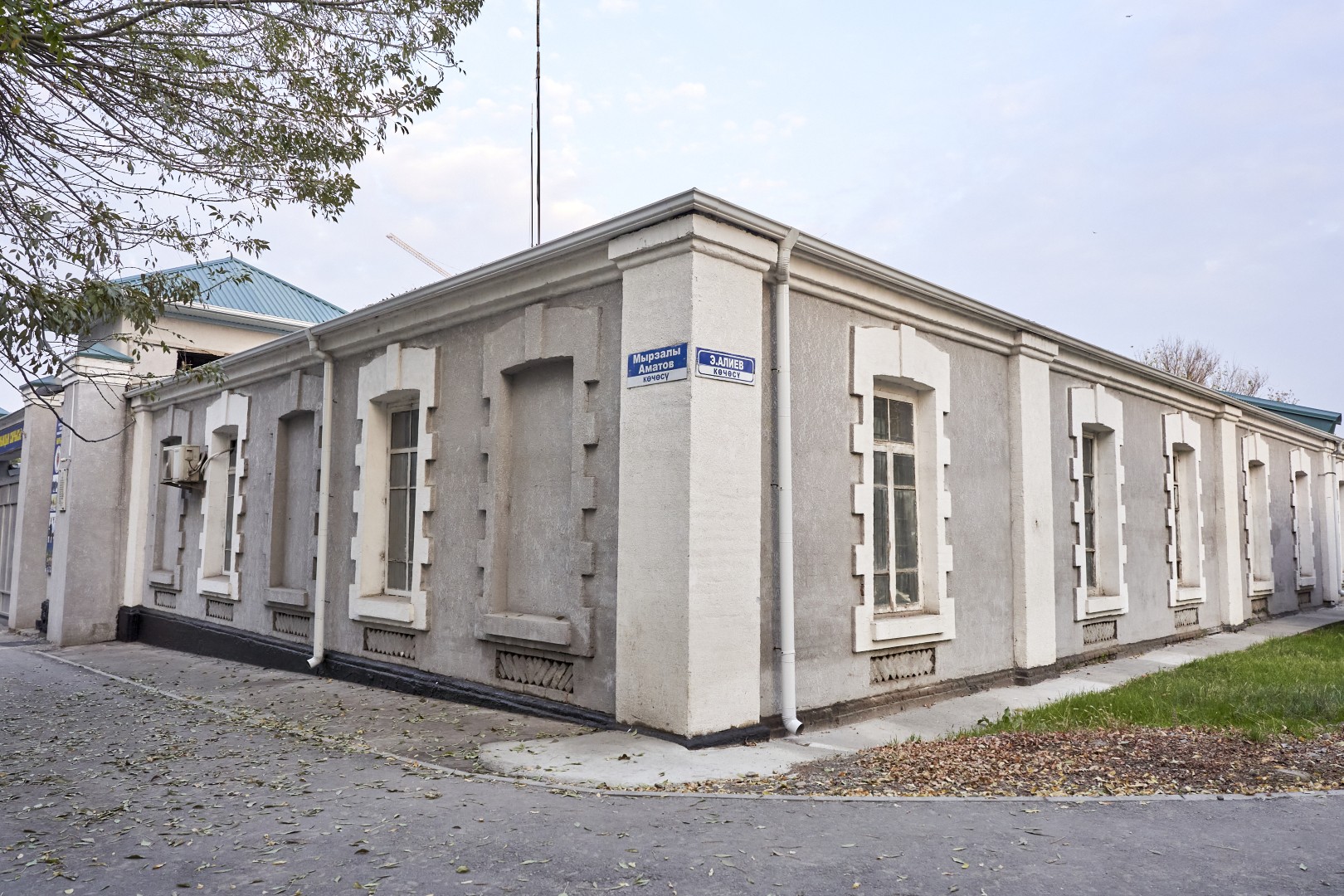
Osh Fortress
The Osh fortress was built in 1919 on the site of the former Tsarist Russian military barracks, located in the very center of the “new…
-

Gate of Fire at Suleiman Mountain
Ancient Osh with its majestic Suleiman Mountain has a magic power, attracting adherents of various religions and beliefs, serving as a place of pilgrimage for…
